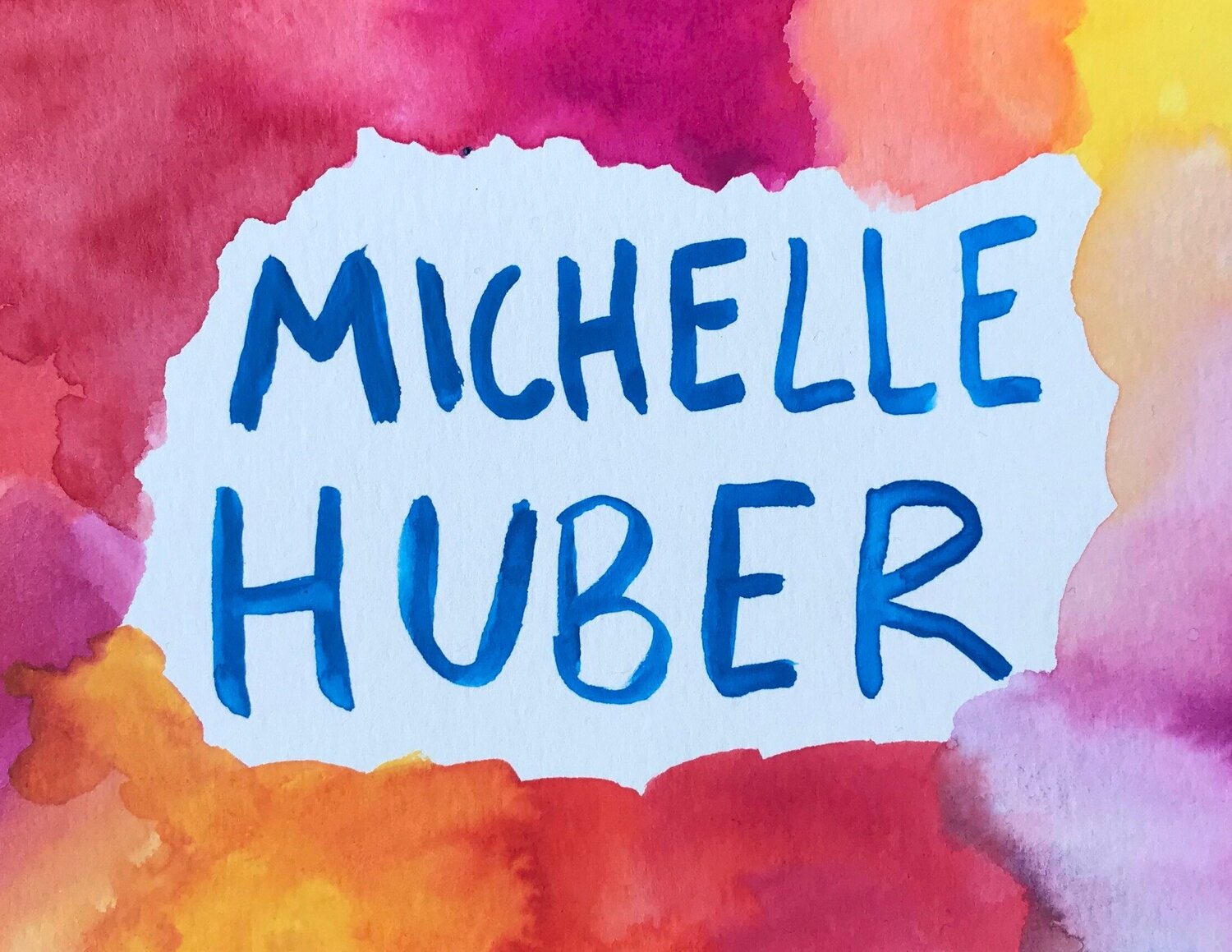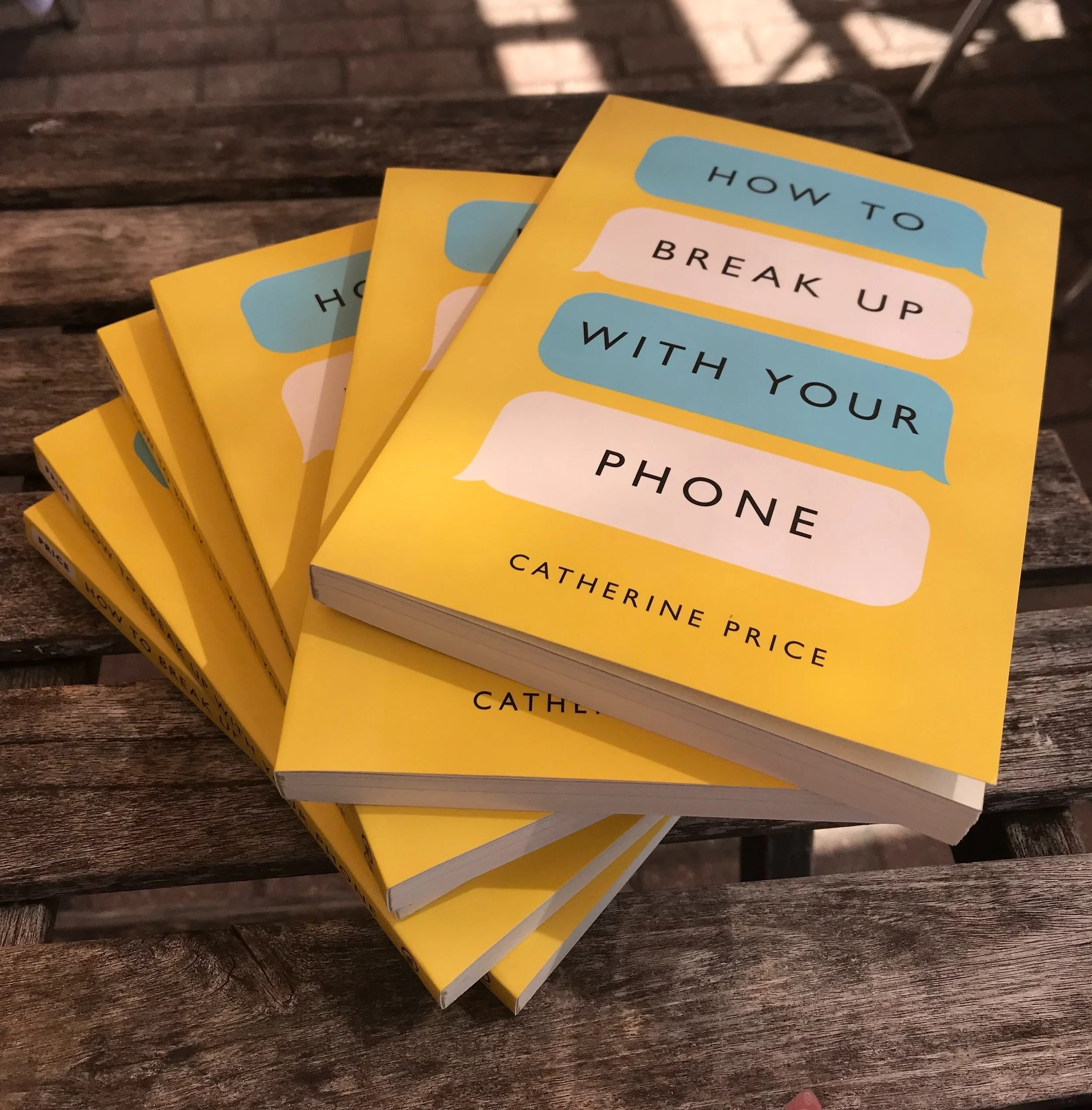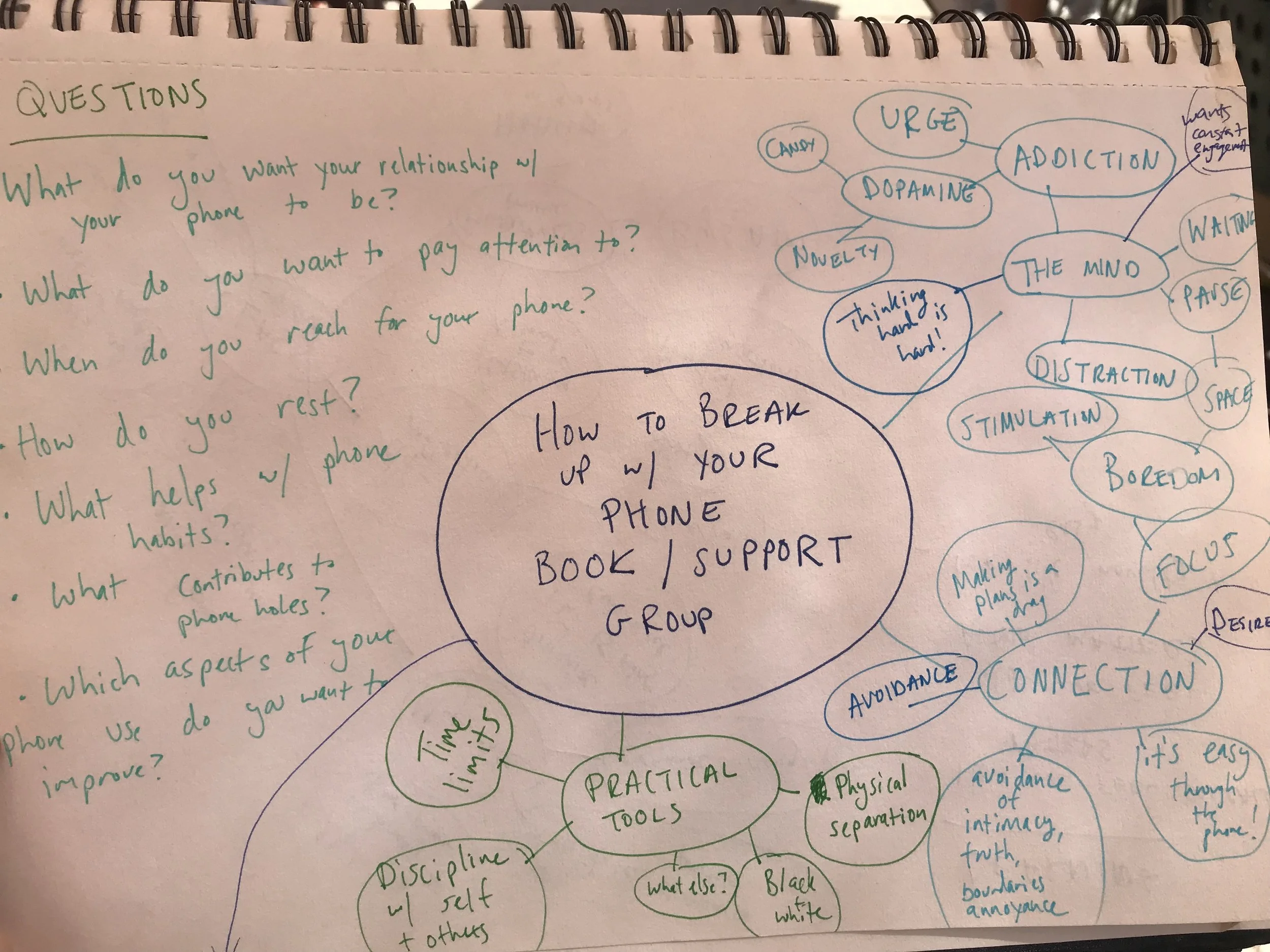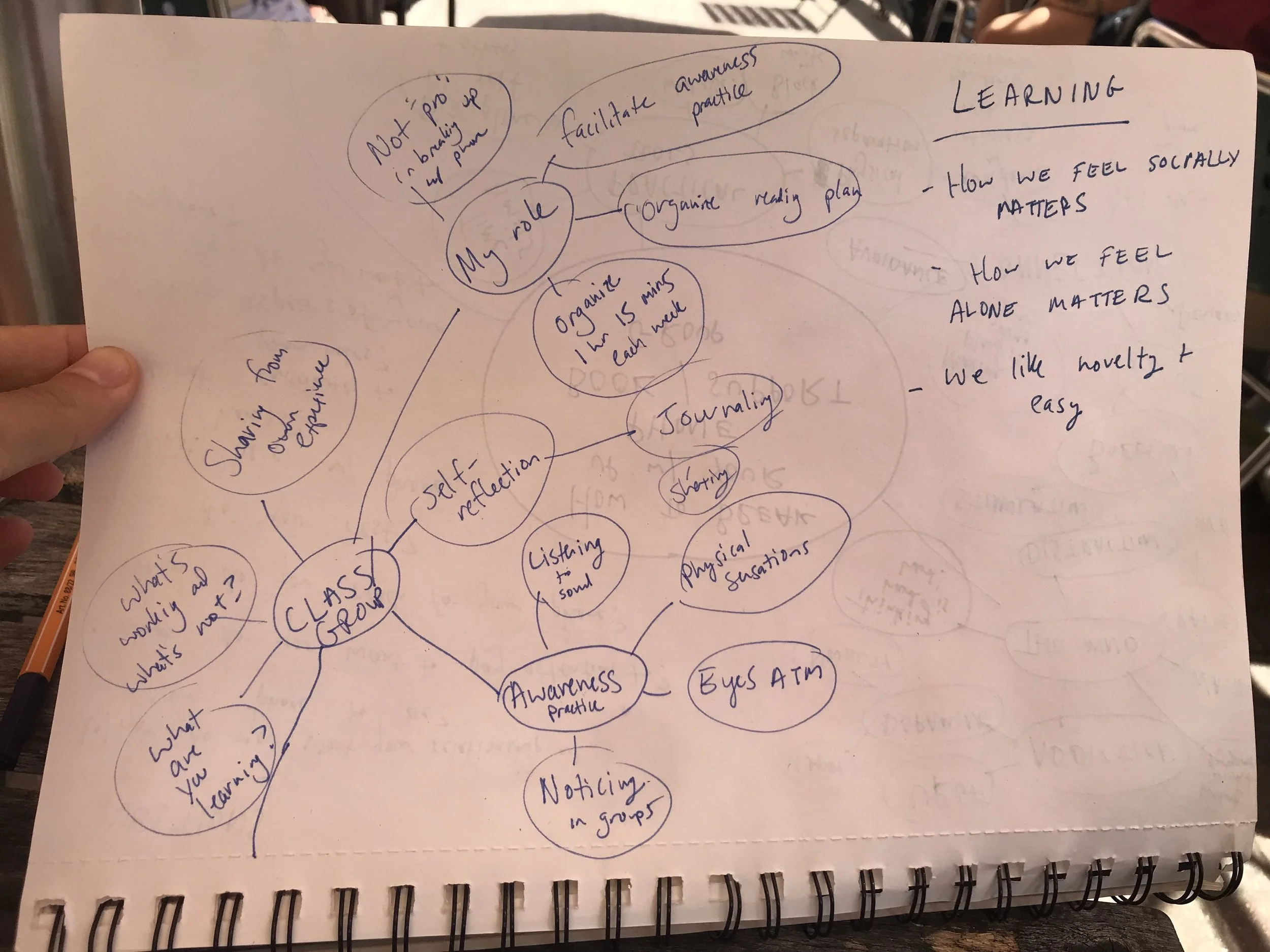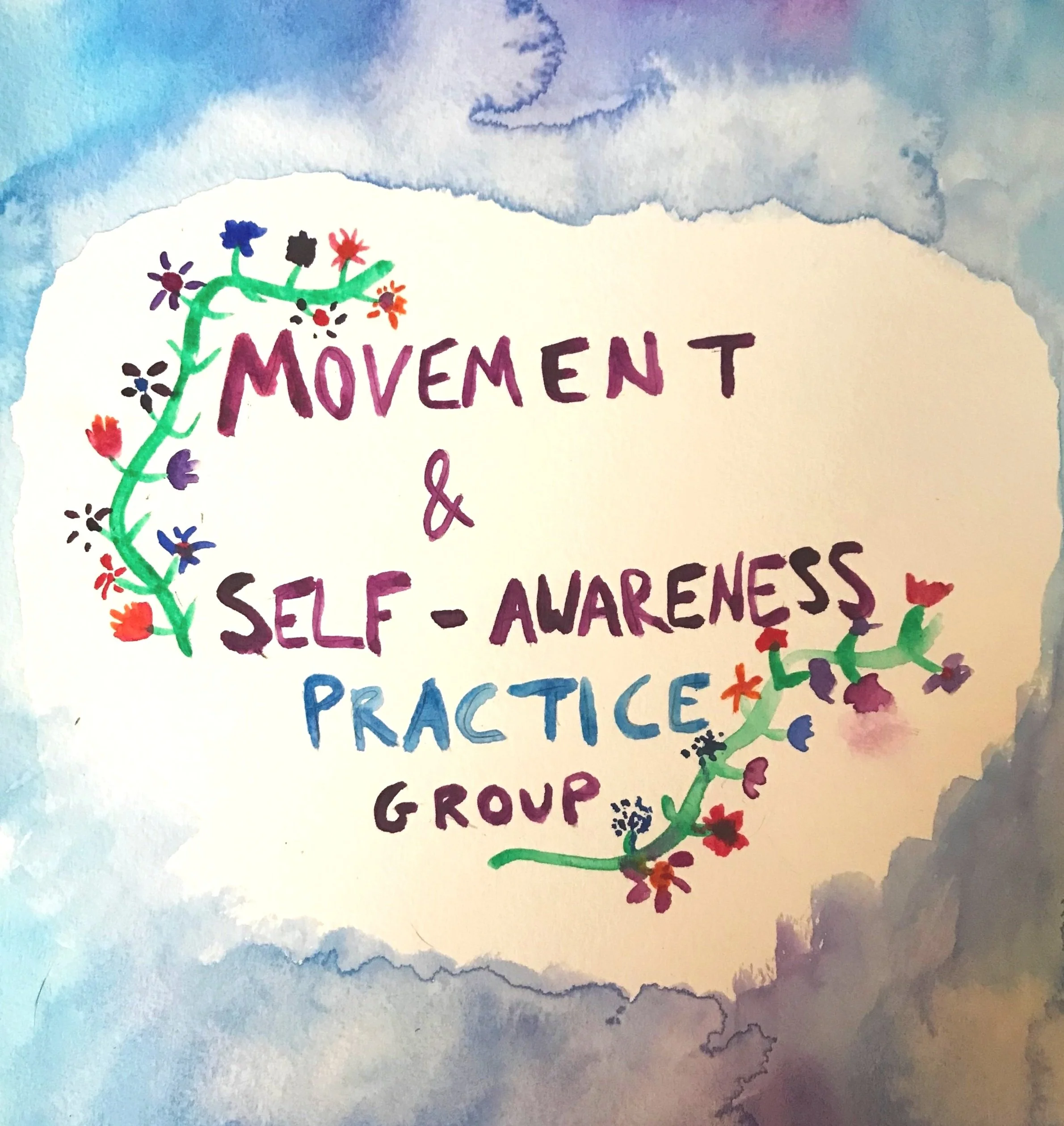Breaking Up With Our Phones Harvest
This fall fourteen of us embarked on Catherine Price’s journey. Everyone came away with some changes or new awareness.
I was drawn to Catherine Price’s 30-day course to break up with the phone because she emphasized increasing mindfulness and presence as one of the keys to disentangling from the addiction of technology.
“it’s been an important process for me and the company in it has been essential.” - Natasha
We all agreed, the process of breaking up with our phones was hugely supported by banding together in a group.
She begins the book with an easy-to-read section packed with information about what makes technology so addictive and some stark statistics about the current state of technology use.
Being more informed has been hugely motivating.
I won’t get into everything here, I recommend you check out her book! Here are some of the motivating topics she touches on:
-Brain science in relationship to dopamine hits and cortisol releases
- the impacts of increased distraction
- loss of ability to focus over time
- decrease of memory over time
-overloading the pre-frontal cortex, creating frequent brain fatigue
- attention being bought and sold, that’s why so many apps are “free.”
She then took us through 30 days of different kinds of practices to change phone habits. Here are some of my take aways, with some input from group members
New Learning and Awareness
PRESENCE & SELF-CONNECTION
Overall increasing self-awareness in my day-to-day life, especially about my phone use has really enriched my day-to-day. I feel like I’m making more active choices to seek out technology in specific moments, rather than mindlessly checking out of habit. This is resulting in me feeling a lot more present with people, my environment and myself.
STEALING ATTENTION
some of my brainstorm mind mapping before the group started
There’s a concept of Price talks about how the phone “steals attention.” It’s designed to capture our attention and keep it as long as possible. I have been able to recognize how hopping on my phone in the middle of cooking, being with a friend or completing another task can completely interrupt the flow of whatever I was engaged with. Following some of Price’s suggestions for rearranging apps and removing notifications have really helped to stay focused and settled.
UNPREDICTABLE DOPAMINE HITS
The phone is addictive because it promises unpredictable dopamine releases. This is the same mechanism as a what makes a slot machine addictive. It’s been so helpful when I feel the urge to check my phone to remember that I’m simply seeking a dopamine hit. If I can catch it, I can sometimes make the choice not to check at all.
OUT OF SIGHT
Putting the phone out of sight, I am much less likely to feel triggered to check it when I don’t need to. Before this course, I always had my phone within reach, now I keep it in a drawer or in my purse, and I check it much less.
IMPACTING MY BRAIN’S FUTURE
Through the course, I’ve realized that when I am distracted with the phone, multi-tasking etc., it has an impact on my brain’s attention span into the future. I am strengthening the neural pathways of distraction and getting better at being distracted instead of getting better at focusing and strengthening my attention span.
Noticing Before - During - and After Using the phone
I learned a lot when I slowed down and really paid attention to using my phone. In anticipation of using my phone, I can feel a little rush of excitement, a tiny thrill. While I am on my phone, my mind is moving fast, I’m seeking something, always wanting more, more, more. I change activities quickly, wanting to receive messages, emails etc., more than think and respond to anything.
Afterwards, depending on how long I use the phone, I often feel totally disoriented to my present moment. It takes an adjustment to figure out what was I doing? Or saying? It’s like I left the room and time traveled and all of the sudden I’m back.
OVERWHELM
I also noticed how the rapidity of lots of different kinds of information all at the same time, for example, questions which require me to make decisions, conversations which require me to respond thoughtfully, devastating news, ideas of things to try in the future etc., usually leave me feeling overwhelmed. I often noticed feeling like a chicken with my head cut off as I ran around and tried to complete tasks at the same time as taking in all of this information.
The phone distracts me from myself
This was a simple, yet profound realization during the process. Of course, when I’m focusing outward on my phone or computer, I’m not noticing what’s going on inside. I’m much less in touch with my inner world. Somehow, I hadn’t quite felt this viscerally before my phone break up.
Patterns of phone use
From one group member, Michael: “I seem to go to my phone when I have certain emotions.
1.lonely
2.bored
3.sad or depressed
I don't seem to go to my phone when I am occupied doing an activity.”
Others noticed that it’s very common to reach for the phone while waiting, anywhere and everywhere.
I noticed I reached for my phone a lot more on a day when I had had a difficult social interaction in the morning and I hadn’t processed it yet.
As a group we often named how we commonly noticed using the phone as a way to rest and zone out.
I loved this quote from Price, "There is nothing wrong with mindless distraction. There are times when zoning out on your phone is exactly what you wanna do. What is problematic--- and what we’re trying to avoid is letting the state of mindless distraction become our default."
It left me with the question, how do we rest away from technology?
Making Changes:
PHASTS
This is a term that Price using for phone fasting- taking time completely away from the phone. I’ve set some boundaries with my phone that now, I’ve decided to put my phone/ computer away after I put my baby to sleep in the evenings, usually by 8:30pm and then no more tech for the evening. It has been really helpful to wind down my mind. It’s also led to really great connection with my partner and myself.
I’ve cut out phone use during meals, in the bathroom, and while I’m walking from here-to-there out in the world. I no longer check while I’m with friends and if I’m home and want to do something on my phone, I try to let my partner know that I’m about to be transported into phone land for a few minutes.
The addictiveness of the phone in general has decreased, I can more frequently go hours without checking and not notice or not care.
Practice:
I have a new intention, which I sometimes remember (oh awareness!). When I feel the urge to check my phone, I want to redirect my attention inwards and check how I’m feeling. Once I have a sense of myself in the present moment, then I can decide if I still want to check my phone or if there’s something else that would be a better choice.
I, and I think the group would agree, that we really enjoyed the aspect of the group of making time for contemplative practice together. I want to do more of this!
Catherine Price asks the question many times, and I keep returning to it:
“What do you want to be paying attention to?”
Other participant experiences:
“It’s not about my relationship with my phone, it’s about my relationship with myself” - Len
“I have not quite broken up with my phone but have definitely earned a lot of independence from it. I feel more aware and intentional around using it and there is new open space & time in my life which feels like a real victory.
I've turned my phone into a much less exciting version of what it was - there are times when I turn it on automatically only to feel disappointed that whatever undefined thing it was that I was looking for is not there. The emotional balloon deflates and I put it back down.” - Katarina
“I have not been on the phone checking or texting when in the company of another person. It annoys me when someone pays more attention to their phone than me.” - Michael
Some practical tips from the group & book:
wear a watch
get an alarm clock, recommendation of Idealsleep sunrise alarm clock
get the phone out of the bedroom, make sure it’s not the first thing you do in the morning or the last at night
Rearrange apps so that the ones that steal attention aren’t on the home screen, that way when you go to use a timer or write a note, you’re not distracted by text messages (for example)
Put the phone on gray scale, so it’s less appealing and attention stealing
Use Adblocker to block youtube ads and some ads across other sites
Start new windows on the computer so other tabs don’t distract
Experiment with taking off notifications
There are many more in the book, this is just a short list.
Practicing together is the BEST:
Are you interested in changing your phone habits? I’m going to continue with this work, as it feels extremely pertinent and meaningful right now. Let’s practice together!
Additional Resources:
Hidden Brain Podcast:
-The Curious Science of Cravings with Judson Brewer
-Finding Focus with Gloria Mark
Body Electric Podcast: host Manoush Zomorodi investigates the relationship between our technology and our bodies:
Catherine Price, How to Break Up with Your Phone.
